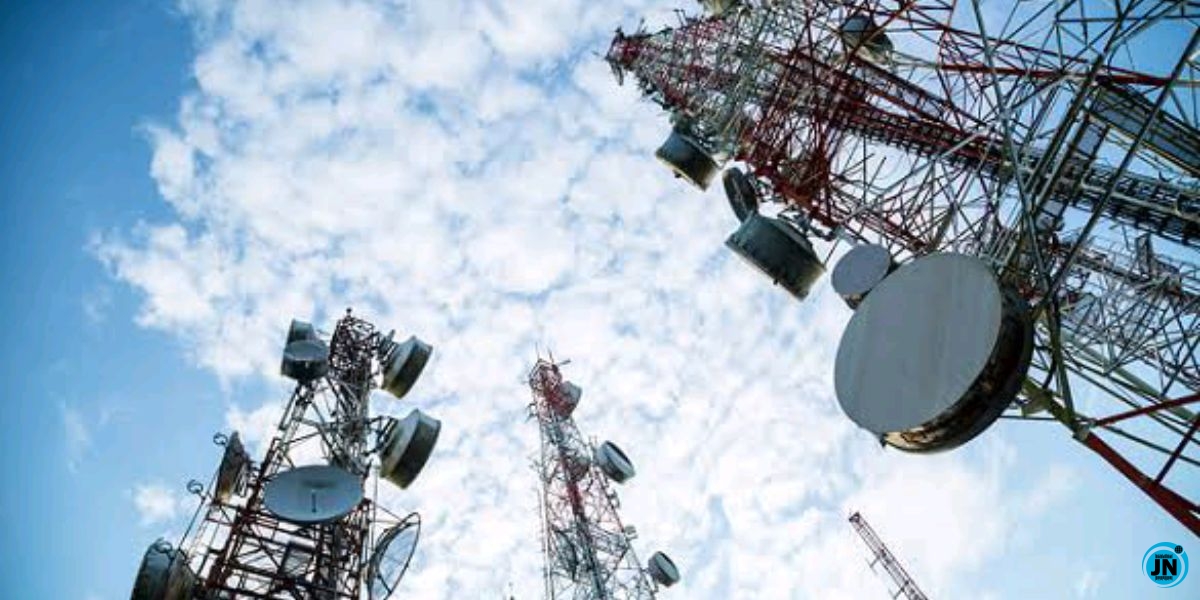
The Nigeria Labour Congress (NLC) has decided to suspend its planned nationwide protest following the Federal Government’s commitment to reviewing the recent 50% increase in telecom tariffs. The decision came after a series of high-level meetings between labour leaders and government officials, which aimed to address public concerns over the impact of the price hike on Nigerian workers and citizens.
The protest, which was originally scheduled for Tuesday, was put on hold after the Secretary to the Government of the Federation (SGF) hosted a crucial meeting in Abuja on Monday. The meeting brought together representatives from the NLC, key government officials, and telecom regulators to deliberate on the contentious increase and explore possible solutions that would be acceptable to all parties.
During the discussions, the Nigerian Communications Commission (NCC) defended the tariff hike, citing multiple economic factors that had made it inevitable. The commission argued that inflation, fluctuations in foreign exchange rates, and the rising cost of energy had significantly impacted telecom operators’ ability to maintain and expand their services. According to the NCC, the adjustment aligns with the mandate given under the Nigerian Communications Act, 2003, which requires the commission to ensure the financial sustainability of the telecom industry while maintaining quality service delivery.
Despite these justifications, the NLC strongly rejected the tariff increase, arguing that it was excessive, unjustified, and placed an unnecessary financial burden on millions of Nigerians. The labour union insisted that instead of a 50% hike, telecom service providers should limit the increase to 5%. The union also issued a warning that it would mobilize nationwide protests if its demands were not met.
Following an emergency meeting of its National Administrative Council (NAC), NLC President Joe Ajaero reiterated the union’s position, stating that the tariff adjustment was “insensitive and a direct attack on Nigerian workers who are already struggling under economic hardship.” He accused the government and telecom operators of failing to consider the financial realities of ordinary Nigerians.
In a show of resistance, the NLC began mobilizing workers and civil society groups to boycott telecom services. Additionally, electricity and aviation workers were invited to join the protest, adding pressure on the government and telecom operators to reconsider the decision. However, despite the growing tensions, telecom service providers defended their actions, stating that the tariff increase was necessary for their survival.
The Chairman of the Association of Licensed Telecommunications Operators of Nigeria (ALTON), Gbenga Adebayo, described the price adjustment as a “lifeline” for the industry. He emphasized that telecom operators had absorbed rising operational costs for years without raising tariffs, and any attempt to lower the new rates could compromise service quality and hinder network expansion.
As pressure mounted, the Federal Government sought to de-escalate the situation by proposing a more structured review process. After extensive negotiations, the NLC agreed to suspend the protest, pending further discussions. The resolution was reached during Monday’s meeting, with both parties agreeing to the formation of a joint review panel to reassess the telecom tariff structure.
Addressing journalists after the meeting, NLC President Joe Ajaero explained that the government had committed to establishing a joint technical committee to review the tariff hike. The committee, which will include five representatives from both the government and the labour union, is expected to submit its recommendations within two weeks. Ajaero emphasized that the NLC must be fully included in the decision-making process, stating: “No stakeholder consultation can exclude us and still stand. The broader committee will work towards a fair and inclusive resolution.”
He further warned that if the committee’s findings were not satisfactory, the NLC would not hesitate to resume its planned protests, boycotts, or other forms of industrial action.
In addition to telecom tariff concerns, the NLC also raised issues about rising electricity costs and excessive taxation, both of which have compounded financial difficulties for Nigerian workers. The labour union insisted that these economic burdens must be addressed alongside the telecom tariff review.
Minister of Information and National Orientation, Mohammed Idris, confirmed that the government had already conducted a study through the NCC before approving the tariff hike. However, he assured the public that the newly formed committee would re-examine the study and provide fresh recommendations within two weeks. The Minister reiterated the government’s commitment to balancing economic sustainability with the welfare of Nigerian citizens.
Meanwhile, the National Civil Society Council of Nigeria (NCSCN), which had initially supported the NLC-led protest, also announced the suspension of its planned demonstration after engaging in discussions with the NCC. The council, which represents over 600 civil society organizations, had initially condemned the tariff increase and vowed to mobilize mass protests.
However, after an extensive review of the financial realities faced by telecom providers, the NCSCN reconsidered its stance. A forensic analysis of telecom companies’ operational costs and financial records revealed that providers had not raised tariffs since 2013 despite significant increases in inflation and energy expenses.
The council’s Executive Director, Blessing Akinlosotu, confirmed that a technical committee had been formed to conduct further investigations into telecom sector costs. “Our findings were eye-opening and warrant a reassessment of our stance,” he noted.
With discussions still ongoing, all parties now await the recommendations of the joint committee, which will determine the next steps in resolving the telecom tariff dispute. The outcome of the committee’s findings will likely shape future government policies on telecom pricing and consumer protection measures.
While the immediate threat of nationwide protests has been averted, the labour movement has made it clear that it remains vigilant. If the review panel’s recommendations fail to provide meaningful relief for Nigerian consumers, the NLC is prepared to take further action to ensure that economic policies remain fair and beneficial to all citizens.

